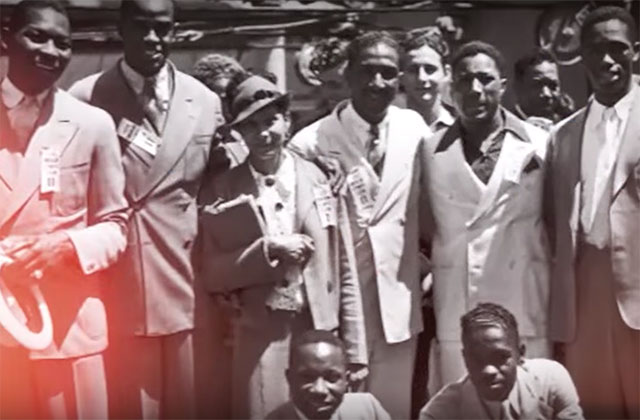From the group of 18 Black athletes who competed for the U.S. in the 1936 Berlin Olympics—defying both Jim Crow and Adolf Hitler—were two women, runners Tidye Pickett and Louise Stokes, who made history, except they were soon forgotten. Untold stories such as theirs are brought to light in “Olympic Pride, American Prejudice,” co-authored by filmmaker Deborah Riley Draper, writer Travis Thrasher and actor Blair Underwood, which NPR station WABE touted as “a perfect quarantine read.”
“As an African American filmmaker, it’s not only a responsibility, it is what I have to do because it’s just completely and totally unacceptable,” Draper told “Morning Edition” host Lisa Rayam, during a March 31 interview. “Instead of just being mad about it, what’s more important is to make art about it that can be distributed across the world so that people can know their names.” That extension will continue, as the book has been adapted into a film.
Draper also gave a history lesson on the 1936 Olympics—where Black runner Jesse Owens snagged four gold medals—to explain the concerted effort between Germany and the U.S. to quiet news of the Black athletes’ 14 medals. “Once African American athletes start winning, that is not the story anyone wanted to tell. The Americans didn’t want to tell that story … the Germans didn’t want to tell that story,” Draper said. “Because if you actually tell the story, that you have 18 superior student-athletes, how do you maintain them as second-class citizens? How do you maintain your Jim Crow construct if they’re not inferior, but in fact superior?”
To listen to the entire interview, visit WABE here. Learn more about those athletes in the video below titled "1936 U.S. Olympic Team: The Untold Story," courtesy of Team USA:
